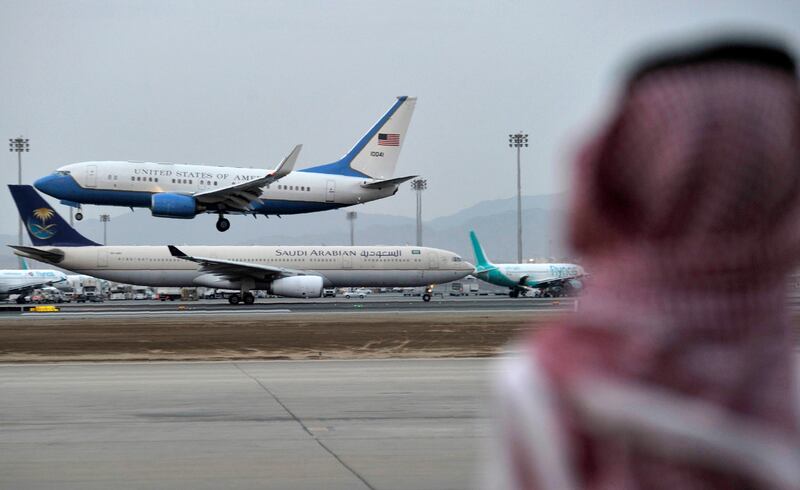Saudi Arabia, in the midst of a massive reform programme to cut its dependence on oil revenues, said it plans to transfer ownership of its airports to its sovereign wealth fund with the view to privatise them.
Mohamed bin Abdel Aziz El Shitwy, an assistant to the financial affairs head of the General Authority of Civil Aviation, said the move was intended to relieve the government of the responsibility of expanding airports and to help create jobs, state-run Saudi Arabian news agency SPA reported.
Under the plan, each airport will be transferred to a separate company ahead of being sold off, the report said. The country’s sovereign wealth fund is called the Public Investment Fund.
Saudi Arabia has already delegated more work for its airports to the private sector in recent years.
The current expansion of King Abdulaziz International Airport in the port city of Jeddah will be undertaken by Changi Airport of Singapore and will start operations in the second half of 2018. Changi will operate the airport for 20 years.
___________________________________________________________
Read more:
[ Saudi Arabia on track to diversify economy ]
[ Saudi Arabia says Qatar is blocking planes from transporting Hajj pilgrims ]
[ Mideast private bankers getting hot on Saudi Arabia ]
___________________________________________________________
The King Abdulaziz Airport has been undergoing expansion since 2006 and when completed is expected to boost capacity to 80 million passengers a year from 13 million a year. It is the main airport that receives millions of Muslim pilgrims a year who make their way to Mecca, Islam's most holy site.
In Medina, a consortium made up of TAV Airports of Turkey, Saudi Oger and Al Rajhi Group won the first public-private partnership in Saudi Arabia in 2011 to build and operate Prince Mohammad bin Abdulaziz Airport for 25 years.
Mr El Shitwy did not give details about the privatisations, but sources told Reuters last month that Saudi Arabia had hired Goldman Sachs to manage the sale of a stake in Riyadh's King Khalid International Airport, which would be the first major
privatisation.
The size of the stake to be offered was not revealed.
Saudi Arabia has been opening up its economy to foreign participation in recent years as depressed oil prices take their toll on economic growth. Its plans for privatisation also include selling a 5 per cent stake in Saudi Aramco, the world’s biggest producer of oil.
The country has also been making it easier for foreigners to buy stocks on the Tadawul stock exchange.
The new business-friendly policies are bringing the country closer to becoming more integrated with the global economy.
At the same time, the government is becoming more eager to improve efficiency to reduce costs. Bank of America Merrill Lynch said in a note on Saudi Arabia this week that the kingdom had been underspending on its most recent budget, dispensing only 381 billion Saudi riyals (Dh372.87bn), or 43 per cent, of the 890bn riyals that was earmarked for spending.
“Authorities appear to have underspent the budgeted target, helping improve fiscal accounts,” said Jean-Michel Saliba, an economist at Merrill Lynch.
“While the authorities’ track record has been one of overspending, this was in years where the realised oil price turned out to be lower than the estimated budgeted oil price, somewhat similar to the current situation.
“Underspending was most pronounced in infrastructure and transportation, and economic resources.”
"Authorities appear to have underspent the budgeted target, helping improve fiscal accounts," said Jean-Michel Saliba, an economist at Merril Lynch.
"While the authorities' track record has been one of overspending, this was in years where the realized oil price turned out to be lower than the estimated budgeted oil price, somewhat similar to the current situation. Underspending was most pronounced in infrastructure and transportation, and economic resources."





